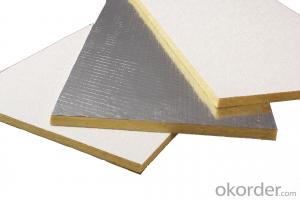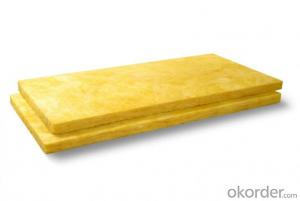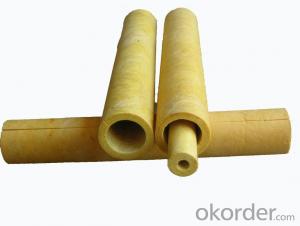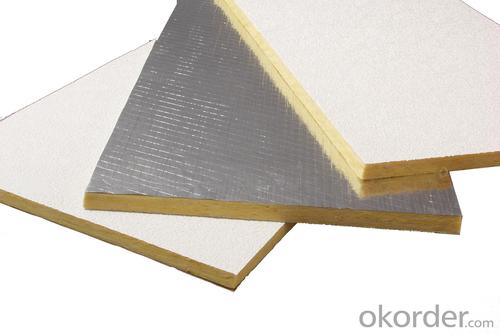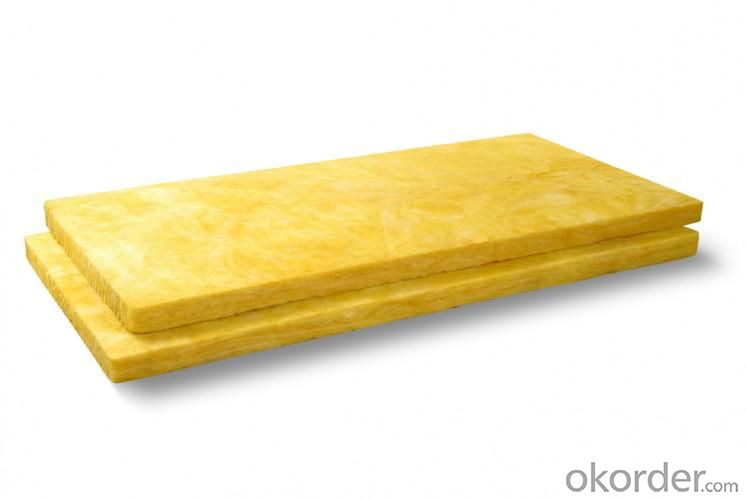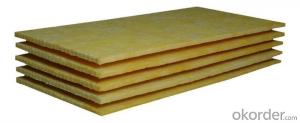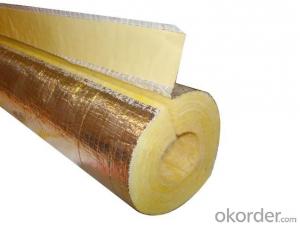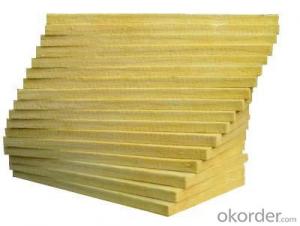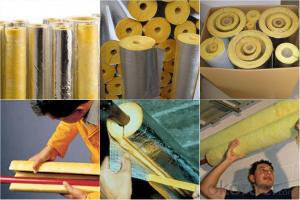Fiberglass Mat Tissue Thermal Insulation and Fireproof Thermal Conductivity Glass Wool Insulation Glass Wool
- Loading Port:
- Tianjin
- Payment Terms:
- TT OR LC
- Min Order Qty:
- 5000 m²
- Supply Capability:
- 20000 m²/month
OKorder Service Pledge
OKorder Financial Service
You Might Also Like
1.Description of Glass Wool Blanket:
Glass Wool Blanket complete glass wool production lines employing latestgeneration technology to manufacture boards, rolled blankets and pipes for residential and industrial thermal and acoustic insulation needs, in compliance with the
top international standards (EN, DIN, ASTM).
Its merit is better in shape, low density and volume, low in thermal conduction, better heat preservation and thermal insulation, fine sound absorption, corrosion-resistant and stable chemical property. Glass wool blanket, glass wool board, glass wool pipe, which made from glass wool, largely use in construction, chemical, electronic, electricity, metallurgy, energy industry and community with good performance in heat preservation, heat insulation, sound absorption.
2.Main features of Glass Wool Blanket:
d): acoustical property
The inside of glass wool is multiaperture, which enhance its absorption quality greatly and thus increase the comfort level of indoor environment.
e): structure quack-proof
Reedy fiber of glass wool lead to better performance in strength in structure, stretching resistance, anti-quack. NO phenomenon of drooping, scatter, collapse emerges in installation and long-term usage.
f): chemical property
Glass woo, with fine property in stable size, can withst and high temperature, thunder, rain, sun shining, acid and alkali and other human and natural factors.
3.Glass Wool Blanket Images:
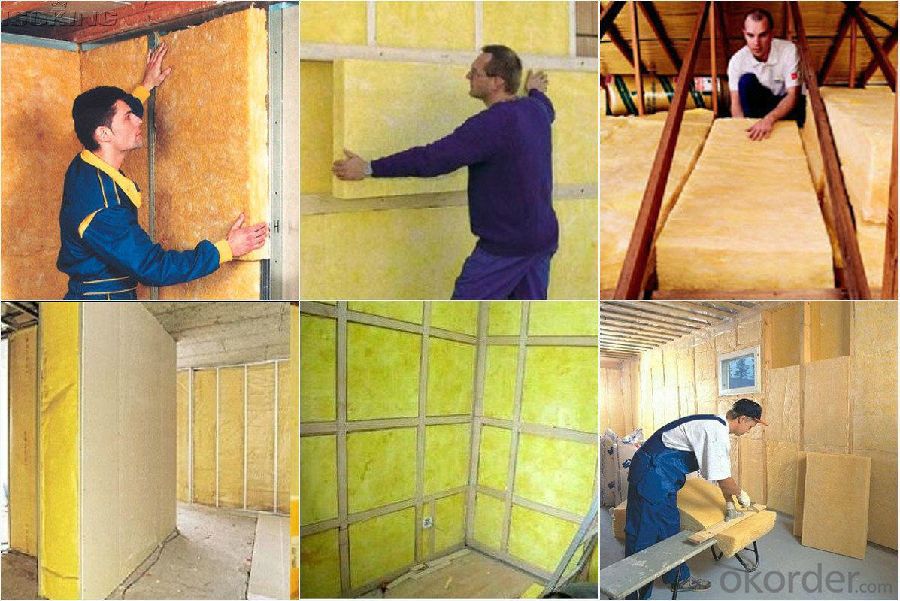
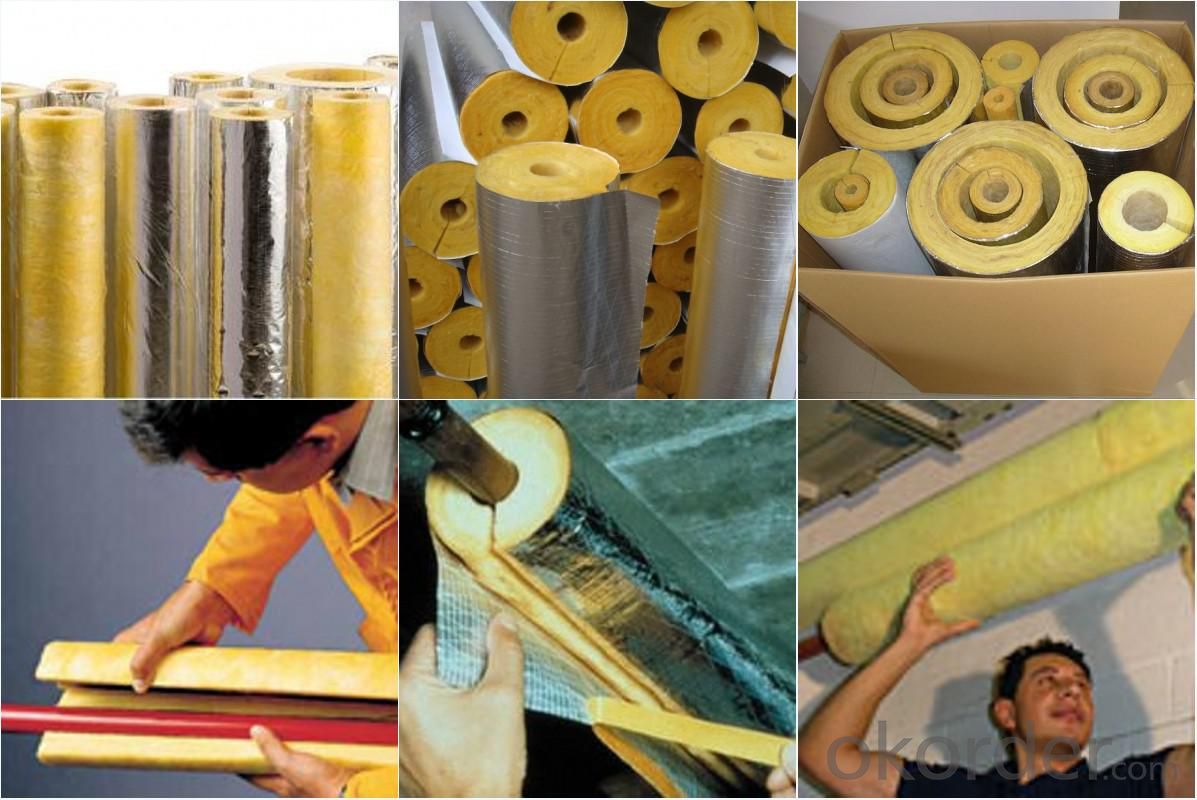
4. Glass Wool Insulation Blanket Technical Parameters:
Property | High/low temperature resistance, oil and fuel resistance, weathering resistance, O zone resistance etc. |
Shape | According to your requirement. |
Color | Any color is available ,according to your requirements. |
Material | NBR, CR, SBR, EPDM, IIR, NR, EP, Silicone, VITON etc. |
Hardness | 30-90ShoreA |
Delivery | In 10 days |
Packing | Plastic bag & carton box or according to your requirements. |
Application | Electronic field, industrial machine & equipment, house-hold appliance, telecommunication, automobile, medical equipment industry etc. |
5.FAQ
We have organized several common questions for our clients,may help you sincerely:
①How about your company?
A world class manufacturer & supplier of Glass Wool Blanket is one of the large scale professional investment casting production bases in China,consisting of both casting foundry forging and machining factory. Annually more than 8000 tons Precision casting and forging parts are exported to markets in Europe,America and Japan. OEM casting and forging service available according to customer’s requirement.
②How to guarantee the quality of the products?
We have established the international advanced quality management system every link from raw material to final product we have strict quality test; We resolutely put an end to unqualified products flowing into the market. At the same time, we will provide necessary follow-up service assurance.
- Q: How does fiberglass mat tissue perform in high temperatures?
- Due to its inherent heat resistance properties, fiberglass mat tissue is highly effective in high temperatures. The mat is crafted from woven glass fibers, creating a durable and sturdy material. These glass fibers possess a high melting point, enabling the fiberglass mat tissue to endure elevated temperatures without distorting or compromising its structural integrity. Unlike other materials, fiberglass mat tissue does not shrink, warp, or become brittle when exposed to high temperatures. It maintains its dimensional stability and mechanical strength, making it suitable for a wide range of applications in industries such as automotive, aerospace, construction, and insulation. Furthermore, fiberglass mat tissue acts as a thermal insulator, providing protection against heat transfer. It effectively resists heat conduction and radiation, assisting in maintaining the desired temperature in a given environment or preventing heat damage to nearby components. Moreover, fiberglass mat tissue is non-combustible, meaning it does not burn or release toxic gases when subjected to fire. This characteristic makes it a dependable choice for applications that necessitate fire resistance, such as fireproofing insulation or protective barriers. In conclusion, fiberglass mat tissue excels in high temperatures. Its heat resistance, dimensional stability, mechanical strength, thermal insulation properties, and non-combustible nature establish it as an outstanding material for demanding environments where elevated temperatures are present.
- Q: How does the density of fiberglass mat tissue affect its performance?
- The density of fiberglass mat tissue significantly affects its performance. Fiberglass mat tissue is typically used in various applications, such as insulation, construction materials, and composite materials. The density of the fiberglass mat tissue determines its strength, durability, flexibility, and thermal insulation properties. A higher density fiberglass mat tissue generally offers better strength and durability. This is because a higher density implies more fiberglass strands are packed closely together, resulting in a denser and stronger material. It can withstand higher loads and impacts, making it suitable for applications requiring structural integrity, such as in construction or automotive industries. Moreover, the density of fiberglass mat tissue also influences its flexibility. A lower density fiberglass mat tissue tends to be more pliable and easier to shape. It can be molded into intricate shapes and contours, making it suitable for applications where flexibility is essential, such as in boat manufacturing or automotive body parts. The density also affects the thermal insulation properties of fiberglass mat tissue. Higher density fiberglass mat tissue offers better insulation against heat transfer. It effectively prevents the transfer of heat through conduction, making it ideal for insulation purposes, such as in buildings or piping systems. However, it is important to note that the density of fiberglass mat tissue should be chosen based on the specific requirements of the application. While higher density may provide better strength and durability, it also increases the weight and cost of the material. Therefore, a balance needs to be struck between the desired performance characteristics and the practicality of the specific application.
- Q: How does fiberglass mat tissue perform in terms of heat insulation?
- Fiberglass mat tissue exhibits a relatively satisfactory performance when it comes to heat insulation. Its composition, consisting of delicate glass fibers and a bonding agent, grants it commendable thermal resistance properties. These fibers effectively capture pockets of air, which function as thermal barriers by diminishing heat transfer. Consequently, fiberglass mat tissue emerges as an appropriate insulation material for a diverse range of applications, including the construction industry, where it is employed to insulate walls, roofs, and attics. Furthermore, fiberglass mat tissue finds extensive use in the automotive and aerospace sectors to insulate engine compartments and curtail heat transfer through vehicle panels, respectively. Nevertheless, it is worth noting that although fiberglass mat tissue offers exceptional thermal insulation, it may not be as efficient as alternative insulation materials like foam or mineral wool, which possess higher thermal resistance values. Ultimately, the suitability of fiberglass mat tissue as an insulation material hinges upon the specific requirements of the project at hand.
- Q: Can fiberglass mat tissue be used for repairing fiberglass shower stalls?
- Yes, fiberglass mat tissue can be used for repairing fiberglass shower stalls. It is a commonly used material for reinforcing and repairing fiberglass surfaces, including shower stalls.
- Q: Can fiberglass mat tissue be used for insulation in commercial buildings?
- Fiberglass mat tissue can indeed be used for insulation in commercial buildings. Fiberglass is a commonly used insulation material due to its excellent thermal performance, durability, and cost-effectiveness. Fiberglass mat tissue is typically made from fine glass fibers that are bonded together using a resin. This mat can be applied to walls, ceilings, and other surfaces to improve the building's energy efficiency by minimizing heat transfer. In commercial buildings, proper insulation is crucial for maintaining a comfortable indoor environment and reducing energy consumption. Fiberglass mat tissue offers several advantages for insulation purposes. It has low thermal conductivity, meaning it can effectively resist heat flow and reduce heat loss or gain through the building envelope. This results in lower energy bills and improved temperature control. Additionally, fiberglass mat tissue is lightweight and easy to install, making it a convenient choice for commercial buildings. It can be easily cut and shaped to fit around obstacles, ensuring a tight seal and preventing air leakage. This helps to further enhance the insulation's effectiveness. Furthermore, fiberglass mat tissue is non-combustible, providing an added safety benefit in commercial buildings where fire protection is crucial. It does not contribute to the spread of flames, and its fire resistance properties can help contain fires and provide valuable escape time in case of emergencies. Overall, fiberglass mat tissue is a suitable and widely used insulation material for commercial buildings. Its thermal performance, ease of installation, and fire resistance make it a reliable choice for achieving energy efficiency and comfort in commercial spaces.
- Q: Does fiberglass mat tissue require any special precautions during transportation?
- Special precautions must be taken during the transportation of fiberglass mat tissue as it is a delicate material that can easily be damaged if not handled correctly. To ensure safe transportation, several measures should be implemented. To begin with, it is necessary to pack the fiberglass mat tissue in a strong and durable material that can protect it from external impacts and vibrations. Heavy-duty cardboard boxes or wooden crates should be used to provide sufficient cushioning and support. Furthermore, it is vital to clearly label the packaging as "Fragile" or "Handle with Care" to alert handlers about the delicate nature of the product. This will help prevent any mishandling or rough treatment during transportation. In addition, the fiberglass mat tissue should be stored and transported in an upright position to minimize the risk of bending or folding that could potentially damage the material. It is also important to avoid placing heavy objects on top of the fiberglass mat tissue to prevent unnecessary pressure or crushing. Lastly, it is advisable to utilize secure and reliable transportation services with experience in handling delicate materials like fiberglass mat tissue. This ensures that the product is transported with the utmost care and attention, reducing the likelihood of damage during transit. By adhering to these special precautions, the risk of damage to the fiberglass mat tissue during transportation can be significantly reduced, guaranteeing its arrival in perfect condition.
- Q: What is fiberglass mat tissue made of?
- Fiberglass mat tissue is made of fine strands of glass fibers that are woven together to form a thin, flexible fabric-like material. These glass fibers are typically made from molten glass that is drawn into very thin filaments and then coated with a binding agent to improve strength and durability. The woven structure of the fiberglass mat tissue helps to provide reinforcement and stability to various materials and products, making it an ideal choice for applications such as insulation, roofing, and composite materials.
- Q: Is fiberglass mat tissue resistant to mold and mildew?
- Yes, fiberglass mat tissue is resistant to mold and mildew due to its non-porous and moisture-resistant properties.
- Q: What is the expected lifespan of fiberglass mat tissue in outdoor applications?
- The expected lifespan of fiberglass mat tissue in outdoor applications can vary depending on various factors such as exposure to weather conditions, maintenance, and quality of the material. However, on average, fiberglass mat tissue is designed to have a lifespan of around 20 to 30 years in outdoor applications. Fiberglass mat tissue is commonly used for reinforcing and providing strength to surfaces in outdoor applications such as roofing, construction, and automotive industries. It is known for its durability, resistance to moisture, and ability to withstand harsh weather conditions. To ensure a longer lifespan for fiberglass mat tissue in outdoor applications, it is crucial to properly maintain and protect it. Regular inspections, cleaning, and repairs when necessary can help prevent any potential damage or deterioration. Additionally, applying protective coatings or sealants can further enhance its resistance to UV rays, moisture, and other environmental factors. It's important to note that the lifespan of fiberglass mat tissue can vary depending on the specific application and the quality of the material used. Therefore, it is recommended to consult with the manufacturer or a professional in the industry to determine the expected lifespan for a specific project or application.
- Q: Is fiberglass mat tissue compatible with different adhesives?
- Yes, fiberglass mat tissue is compatible with different adhesives. Fiberglass mat tissue is a versatile material that can be used in various applications such as construction, automotive, and aerospace industries. It is commonly used as a reinforcement material in composites, where it is combined with resin and adhesive to create strong and durable structures. The compatibility of fiberglass mat tissue with different adhesives depends on several factors such as the type of adhesive, the specific application, and the desired performance requirements. Fiberglass mat tissue can be compatible with a wide range of adhesives including epoxy, polyester, vinyl ester, and polyurethane adhesives. It is important to consider the specific properties and characteristics of the adhesive and the fiberglass mat tissue when selecting the adhesive for a particular application. Factors such as curing time, viscosity, bond strength, and chemical resistance should be taken into account to ensure optimal adhesion and performance. In some cases, surface treatment or priming may be necessary to enhance the compatibility between the fiberglass mat tissue and the adhesive. This can involve applying a primer or using a specific surface treatment method to promote adhesion and ensure a strong bond between the two materials. Overall, fiberglass mat tissue is compatible with different adhesives, but it is crucial to consider the specific requirements of the application and select the appropriate adhesive and surface treatment method to achieve the desired results.
Send your message to us
Fiberglass Mat Tissue Thermal Insulation and Fireproof Thermal Conductivity Glass Wool Insulation Glass Wool
- Loading Port:
- Tianjin
- Payment Terms:
- TT OR LC
- Min Order Qty:
- 5000 m²
- Supply Capability:
- 20000 m²/month
OKorder Service Pledge
OKorder Financial Service
Similar products
Hot products
Hot Searches
Related keywords
